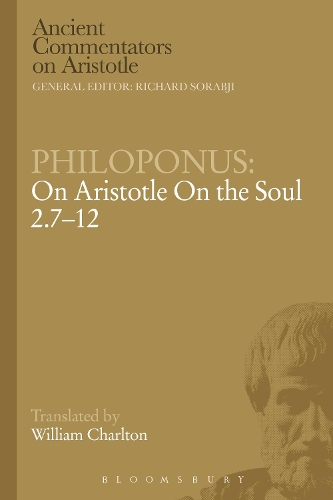
Philoponus: On Aristotle On the Soul 2.7-12
(Paperback)
Available Formats
Paperback
Published: 26th March 2014
Hardback
Published: 1st November 2011
Paperback
Published: 26th March 2014
Paperback
Published: 26th March 2014
Paperback
Published: 26th March 2014
Paperback
Published: 26th March 2014
Paperback
Published: 26th March 2014
Paperback
Published: 26th March 2014
Paperback
Published: 26th March 2014
Paperback
Published: 26th March 2014
Paperback
Published: 26th March 2014
Paperback
Published: 26th March 2014
Paperback
Published: 26th March 2014
Paperback
Published: 26th March 2014
Paperback
Published: 10th April 2014
Hardback
Published: 1st April 2010
Publishing Details
Philoponus: On Aristotle On the Soul 2.7-12
By (Author) Philoponus
Translated by William Charlton
Bloomsbury Publishing PLC
Bloomsbury Academic
26th March 2014
United Kingdom
Classifications
Tertiary Education
Non Fiction
128.1
Physical Properties
Paperback
192
Width 156mm, Height 234mm
322g
Description
In this, one of the most original ancient texts on sense perception, Philoponus, the sixth century AD commentator on Aristotle, considers how far perceptual processes are incorporeal. Colour affects us in the same way as light which, passing through a stained glass window, affects the air, but colours only the masonry beyond. Sounds and smells are somewhat more physical, travelling most of the way to us with a moving block of air, but not quite all the way. Only the organ of touch takes on the tangible qualities perceived, because reception of sensible qualities in perception is cognitive, not physical. Neither light nor the action of colour involves the travel of bodies. Our capacities for psychological activity do not follow, nor result from, the chemistry of our bodies, but merely supervene on that. On the other hand, Philoponus shows knowledge of the sensory nerves, and he believes that thought and anger both warm us. This argument is used elsewhere to show how we can tell someone else's state of mind.
Author Bio
William Charlton was formerly head of the Philosophy Department at the University of Edinburgh.
